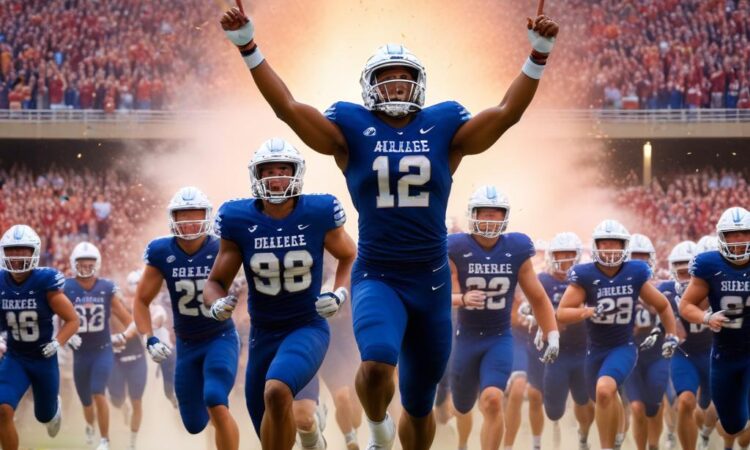The Impact of the New NIL Rules in College Athletics
The NCAA’s new Name, Image, and Likeness (NIL) rules have revolutionized college sports, allowing athletes to profit from their brand. While some hail it as a step towards fair compensation, others argue that it creates an uneven playing field and undermines the amateur nature of college athletics.
The landscape of college athletics has been irrevocably altered by the advent of NIL rules, granting student-athletes the right to monetize their name, image, and likeness. This newfound freedom has sparked a whirlwind of activity, with athletes securing endorsement deals, launching personal brands, and generating substantial income. Proponents of NIL argue that it empowers athletes to reap the benefits of their hard work and talent, while simultaneously promoting fairness and equity within college sports.
However, the implementation of NIL has also raised concerns and sparked debates. Critics argue that the lack of uniformity and clarity in regulations has created an uneven playing field, favoring athletes at larger and more affluent institutions. Concerns have been raised about the potential for exploitation and the erosion of the amateur ideal, as athletes are now viewed as commodities rather than students pursuing higher education.
One of the most significant impacts of NIL is the emergence of a new market for athlete representation. Agencies and companies have sprung up to assist athletes in navigating the complexities of NIL deals, negotiating contracts, and managing their brand. This has led to concerns about athlete exploitation and the potential for financial mismanagement.
Furthermore, NIL has raised questions about the role of universities in the monetization of student-athletes. While some institutions have embraced NIL and actively supported their athletes in maximizing their earnings, others have struggled to adapt to the changing landscape. The lack of uniformity in institutional policies has created a patchwork system, with varying levels of support and regulation across the country.
The long-term consequences of NIL remain to be seen. Will it truly promote fairness and opportunity for all athletes, or will it further widen the gap between haves and have-nots? Will the pursuit of financial gain overshadow the academic mission of higher education? These are just some of the complex questions that will continue to shape the future of college athletics.
The implementation of NIL has undoubtedly ushered in a new era for college sports. Whether this era will ultimately benefit athletes, universities, and the integrity of the game remains a matter of ongoing debate. As the rules continue to evolve and the landscape continues to shift, it is imperative that all stakeholders engage in thoughtful dialogue and work collaboratively to ensure that NIL serves the best interests of everyone involved.
The impact of NIL is multifaceted, affecting not only athletes but also coaches, universities, and the broader landscape of college sports. The implications of these changes will be felt for years to come, shaping the future of this beloved industry. As the NIL era unfolds, it is crucial to monitor its impact, address challenges, and strive for a system that is fair, equitable, and conducive to the overall well-being of student-athletes.
The new NIL rules have created both opportunities and challenges for college athletes. While some argue that it is a necessary step towards fair compensation, others fear that it will undermine the amateur nature of college sports. The long-term consequences of NIL remain to be seen, but it is clear that these changes have fundamentally altered the landscape of college athletics.
As we navigate the uncharted territory of NIL, it is essential to engage in open and honest dialogue. We must strive to create a system that balances the rights of athletes with the integrity of college sports, ensuring that the pursuit of academic excellence remains paramount.

